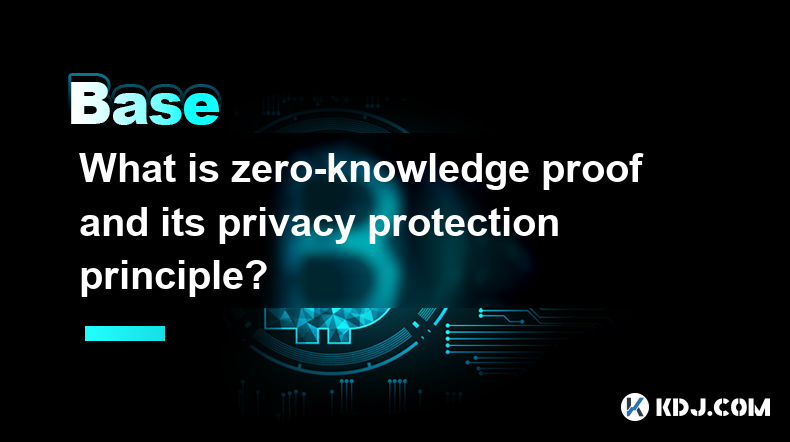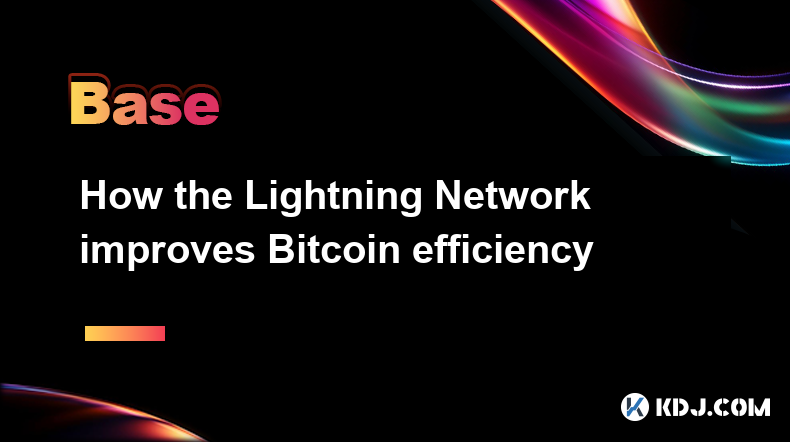-
 Bitcoin
Bitcoin $84,734.8249
-0.50% -
 Ethereum
Ethereum $1,594.1623
-0.39% -
 Tether USDt
Tether USDt $1.0000
0.01% -
 XRP
XRP $2.0674
-1.00% -
 BNB
BNB $593.9520
0.29% -
 Solana
Solana $139.3397
0.42% -
 USDC
USDC $1.0000
0.01% -
 Dogecoin
Dogecoin $0.1569
-1.33% -
 TRON
TRON $0.2416
-0.09% -
 Cardano
Cardano $0.6245
-0.91% -
 UNUS SED LEO
UNUS SED LEO $9.3277
-0.33% -
 Chainlink
Chainlink $12.9746
0.85% -
 Avalanche
Avalanche $19.6103
0.48% -
 Stellar
Stellar $0.2447
-0.92% -
 Toncoin
Toncoin $2.9844
-0.21% -
 Shiba Inu
Shiba Inu $0.0...01238
1.47% -
 Sui
Sui $2.1341
-0.78% -
 Hedera
Hedera $0.1641
-1.30% -
 Bitcoin Cash
Bitcoin Cash $334.7157
-1.07% -
 Polkadot
Polkadot $3.8717
3.85% -
 Hyperliquid
Hyperliquid $17.7266
-2.23% -
 Litecoin
Litecoin $76.5582
0.51% -
 Bitget Token
Bitget Token $4.4968
0.91% -
 Dai
Dai $0.9999
-0.01% -
 Ethena USDe
Ethena USDe $0.9992
0.01% -
 Pi
Pi $0.6322
-2.17% -
 Monero
Monero $216.7871
1.87% -
 Uniswap
Uniswap $5.2694
-0.02% -
 Pepe
Pepe $0.0...07469
2.80% -
 OKB
OKB $50.6357
0.12%
What is zero-knowledge proof and its privacy protection principle?
Zero-knowledge proof enhances privacy in cryptocurrencies like Zcash by allowing transaction validation without revealing sender, receiver, or amount details.
Apr 12, 2025 at 08:42 am

Zero-knowledge proof (ZKP) is a cryptographic method that allows one party (the prover) to prove to another party (the verifier) that a given statement is true, without revealing any information beyond the validity of the statement itself. This concept is particularly valuable in the cryptocurrency world, where privacy and security are paramount. In this article, we will explore what zero-knowledge proof is and how it contributes to privacy protection within the cryptocurrency ecosystem.
Understanding Zero-Knowledge Proof
Zero-knowledge proof is based on the principle that it is possible to prove the possession of certain information without disclosing the information itself. This is achieved through a series of interactive protocols between the prover and the verifier. The prover demonstrates that they know a secret, but the verifier learns nothing about the secret except that the prover indeed knows it.
For example, imagine Alice wants to prove to Bob that she knows the solution to a complex puzzle without revealing the solution. Using ZKP, Alice can convince Bob that she knows the answer without giving him any clues about it. This is done through a series of challenges and responses that Bob can verify without learning the actual solution.
The Mechanics of Zero-Knowledge Proof
The mechanics of ZKP involve several key components:
- Statement: The claim that the prover wants to prove to the verifier.
- Witness: The secret information that the prover uses to prove the statement.
- Protocol: The series of steps that the prover and verifier follow to establish the proof.
The protocol typically involves multiple rounds of interaction. In each round, the verifier poses a challenge to the prover, who responds in a way that convinces the verifier of the truth of the statement without revealing the witness. The process continues until the verifier is satisfied that the prover indeed knows the secret.
Zero-Knowledge Proof in Cryptocurrencies
In the realm of cryptocurrencies, zero-knowledge proof plays a crucial role in enhancing privacy and security. One of the most notable applications is in privacy-focused cryptocurrencies like Zcash, which uses a type of ZKP called zk-SNARKs (Zero-Knowledge Succinct Non-Interactive Argument of Knowledge).
Zcash allows users to transact on the blockchain without revealing the sender, receiver, or the amount of the transaction. This is achieved through the use of zk-SNARKs, which enable the network to verify the validity of transactions without disclosing any sensitive information.
Privacy Protection Principle of Zero-Knowledge Proof
The privacy protection principle of zero-knowledge proof lies in its ability to maintain the confidentiality of the prover's information while still allowing the verifier to confirm the truth of a statement. This is particularly important in cryptocurrencies, where users want to ensure that their financial transactions remain private.
In a typical blockchain transaction, all details are recorded on a public ledger, which can compromise user privacy. However, with ZKP, users can prove that they have the necessary funds and that the transaction is valid without revealing any specific details about the transaction itself.
Implementation of Zero-Knowledge Proof in Cryptocurrency Transactions
To understand how zero-knowledge proof is implemented in cryptocurrency transactions, let's consider a practical example using Zcash:
- Setup: The user wants to send Zcash to another user without revealing the transaction details.
- Transaction Creation: The user creates a transaction and generates a zk-SNARK proof that demonstrates the validity of the transaction without revealing any sensitive information.
- Proof Verification: The transaction, along with the zk-SNARK proof, is broadcast to the Zcash network. The nodes on the network verify the proof without learning any details about the transaction.
- Transaction Confirmation: Once the proof is verified, the transaction is added to the blockchain, ensuring that the transaction is valid and private.
This process ensures that the user's privacy is protected while still maintaining the integrity of the blockchain.
Benefits of Zero-Knowledge Proof in Cryptocurrency
The use of zero-knowledge proof in cryptocurrencies offers several significant benefits:
- Enhanced Privacy: Users can transact without revealing their identities or transaction details, which is crucial for maintaining financial privacy.
- Security: ZKP ensures that transactions are valid without compromising the security of the network.
- Efficiency: ZKP protocols can be designed to be efficient, allowing for quick verification of proofs without requiring extensive computational resources.
These benefits make ZKP an essential tool for privacy-focused cryptocurrencies and other blockchain applications where privacy is a priority.
Challenges and Considerations
While zero-knowledge proof offers significant advantages, there are also challenges and considerations to keep in mind:
- Complexity: Implementing ZKP protocols can be complex and requires a deep understanding of cryptography.
- Scalability: Some ZKP protocols can be computationally intensive, which may impact the scalability of the blockchain.
- Regulatory Concerns: The use of ZKP in cryptocurrencies can raise regulatory concerns, as it can make it difficult for authorities to monitor transactions for illegal activities.
Despite these challenges, the potential benefits of ZKP in enhancing privacy and security make it a valuable tool in the cryptocurrency ecosystem.
Frequently Asked Questions
Q: Can zero-knowledge proof be used in other blockchain applications besides cryptocurrencies?
A: Yes, zero-knowledge proof can be applied to various blockchain applications beyond cryptocurrencies. For example, it can be used in identity verification systems to prove that a user meets certain criteria without revealing personal information. It can also be used in supply chain management to verify the authenticity of products without disclosing sensitive data.
Q: How does zero-knowledge proof differ from traditional encryption methods?
A: Traditional encryption methods protect data by transforming it into an unreadable format that can only be deciphered with a key. Zero-knowledge proof, on the other hand, allows one party to prove the truth of a statement to another party without revealing any underlying information. While encryption focuses on securing data, ZKP focuses on proving knowledge without disclosure.
Q: Are there any cryptocurrencies other than Zcash that use zero-knowledge proof?
A: Yes, several other cryptocurrencies utilize zero-knowledge proof for privacy protection. For example, Monero uses ring signatures, which are a form of ZKP, to obscure the sender's identity. Another example is the Ethereum-based project, Tornado Cash, which uses ZKP to provide anonymous transactions on the Ethereum blockchain.
Q: How can users ensure the security of zero-knowledge proof implementations?
A: To ensure the security of zero-knowledge proof implementations, users should verify that the protocols are correctly implemented and audited by reputable third parties. Additionally, users should stay informed about any vulnerabilities or updates related to the ZKP protocols used in their chosen cryptocurrencies. Regularly updating software and following best practices for securing digital assets can also help maintain the integrity of ZKP-based systems.
Disclaimer:info@kdj.com
The information provided is not trading advice. kdj.com does not assume any responsibility for any investments made based on the information provided in this article. Cryptocurrencies are highly volatile and it is highly recommended that you invest with caution after thorough research!
If you believe that the content used on this website infringes your copyright, please contact us immediately (info@kdj.com) and we will delete it promptly.
- Bitcoin (BTC) Price on the Edge of a Major Breakout, New ATH Target of $130k
- 2025-04-20 16:55:13
- Bitcoin Dominance hasn't Exhausted Its Upside Trajectory Yet, Jan3 CEO Samson Mow Says
- 2025-04-20 16:55:13
- title: Veteran trader Peter Brandt predicts that S&P 500, Bitcoin (BTC) and Ethereum (ETH) will see much lower levels by the end of the year.
- 2025-04-20 16:50:13
- Oregon Sues Coinbase, Claiming the Cryptocurrency Exchange Broke State Securities Laws
- 2025-04-20 16:50:13
- Optimism Bitcoin (OP) Is Showing Bullish Technical Indicators, Suggesting a Potential Breakout and Future Price Surge
- 2025-04-20 16:45:13
- Trump's Attempt to Remove Fed Chair Jerome Powell Could Cause Financial Chaos
- 2025-04-20 16:45:13
Related knowledge

The function of cross-chain bridges in blockchain
Apr 19,2025 at 10:01am
The function of cross-chain bridges in blockchain is a pivotal topic within the cryptocurrency ecosystem, as these tools enable the seamless transfer of assets and data across different blockchain networks. This article delves into the various aspects of cross-chain bridges, explaining their importance, how they work, and the benefits and challenges the...

How the Lightning Network improves Bitcoin efficiency
Apr 17,2025 at 08:56pm
The Lightning Network represents a significant advancement in the Bitcoin ecosystem, aiming to address some of the most pressing issues related to transaction speed and cost. By enabling off-chain transactions, the Lightning Network drastically improves Bitcoin's efficiency, allowing for faster and cheaper transactions. This article will explore how the...

Market value ranking basis in cryptocurrencies
Apr 20,2025 at 05:08am
The market value ranking in cryptocurrencies is a crucial metric that investors and enthusiasts use to gauge the relative size and importance of different digital assets. This ranking is primarily based on the total market capitalization of each cryptocurrency, which is calculated by multiplying the current price of a single unit of the cryptocurrency b...

What is the role of nodes in the blockchain
Apr 20,2025 at 03:29pm
The role of nodes in the blockchain is fundamental to the operation and integrity of the network. Nodes are the individual computers or devices that participate in the blockchain network. They play a critical role in maintaining the decentralized nature of blockchain technology, ensuring that transactions are verified, recorded, and distributed across t...

Analysis of the KYC process of cryptocurrency exchanges
Apr 17,2025 at 05:07pm
The Know Your Customer (KYC) process is a critical component in the operations of cryptocurrency exchanges. It serves as a regulatory measure to prevent fraud, money laundering, and other illicit activities. KYC procedures are designed to verify the identity of users and ensure compliance with financial regulations. This article delves into the various ...

The operating mechanism behind the stablecoin USDT
Apr 20,2025 at 08:08am
The stablecoin USDT, also known as Tether, is a cryptocurrency designed to maintain a stable value by pegging it to a reserve asset, typically the US dollar. Understanding the operating mechanism behind USDT is crucial for anyone interested in the cryptocurrency market, as it plays a significant role in trading and liquidity. This article will delve int...

The function of cross-chain bridges in blockchain
Apr 19,2025 at 10:01am
The function of cross-chain bridges in blockchain is a pivotal topic within the cryptocurrency ecosystem, as these tools enable the seamless transfer of assets and data across different blockchain networks. This article delves into the various aspects of cross-chain bridges, explaining their importance, how they work, and the benefits and challenges the...

How the Lightning Network improves Bitcoin efficiency
Apr 17,2025 at 08:56pm
The Lightning Network represents a significant advancement in the Bitcoin ecosystem, aiming to address some of the most pressing issues related to transaction speed and cost. By enabling off-chain transactions, the Lightning Network drastically improves Bitcoin's efficiency, allowing for faster and cheaper transactions. This article will explore how the...

Market value ranking basis in cryptocurrencies
Apr 20,2025 at 05:08am
The market value ranking in cryptocurrencies is a crucial metric that investors and enthusiasts use to gauge the relative size and importance of different digital assets. This ranking is primarily based on the total market capitalization of each cryptocurrency, which is calculated by multiplying the current price of a single unit of the cryptocurrency b...

What is the role of nodes in the blockchain
Apr 20,2025 at 03:29pm
The role of nodes in the blockchain is fundamental to the operation and integrity of the network. Nodes are the individual computers or devices that participate in the blockchain network. They play a critical role in maintaining the decentralized nature of blockchain technology, ensuring that transactions are verified, recorded, and distributed across t...

Analysis of the KYC process of cryptocurrency exchanges
Apr 17,2025 at 05:07pm
The Know Your Customer (KYC) process is a critical component in the operations of cryptocurrency exchanges. It serves as a regulatory measure to prevent fraud, money laundering, and other illicit activities. KYC procedures are designed to verify the identity of users and ensure compliance with financial regulations. This article delves into the various ...

The operating mechanism behind the stablecoin USDT
Apr 20,2025 at 08:08am
The stablecoin USDT, also known as Tether, is a cryptocurrency designed to maintain a stable value by pegging it to a reserve asset, typically the US dollar. Understanding the operating mechanism behind USDT is crucial for anyone interested in the cryptocurrency market, as it plays a significant role in trading and liquidity. This article will delve int...
See all articles























































































